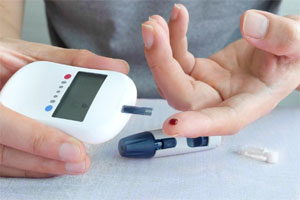 https://naturalfertilityaustin.com/wp-content/uploads/2022/08/rh-diabetes-infertility.jpg
200
300
admin
https://naturalfertilityaustin.com/wp-content/uploads/2021/02/l3-fertility-dr-austin.png
admin2022-08-29 03:42:442023-01-28 02:09:40How Diabetes Effects Fertility in Men & Women
https://naturalfertilityaustin.com/wp-content/uploads/2022/08/rh-diabetes-infertility.jpg
200
300
admin
https://naturalfertilityaustin.com/wp-content/uploads/2021/02/l3-fertility-dr-austin.png
admin2022-08-29 03:42:442023-01-28 02:09:40How Diabetes Effects Fertility in Men & WomenMale Infertility
New Developments in Diagnosing & Treating Male Infertility
Infertility is a complex condition that can have many different causes – including male, female, and combined issues. Unfortunately, infertility has typically been seen as primarily a female issue. But research over the past few decades has increasingly shown that male infertility is also a significant contributing factor to a couple’s inability to conceive.
In fact, according to newer statistics, it is estimated that male infertility is a contributing factor in up to 50% of infertile couples. In some cases, male infertility may be the sole cause of a couple’s trouble getting pregnant, while in other cases it may be a contributing factor alongside female infertility issues. This makes sense because factors such as age, lifestyle, or underlying medical conditions affect both men and women almost equally.
In this article Austin, TX natural fertility specialist Dr. Ruthie Harper, MD discusses the latest developments in diagnosing and treating male infertility.
Diagnosing Male Infertility
It is important to note that male infertility can have many different causes, including sperm abnormalities, hormonal imbalances, anatomical issues, genetic factors, age, infections, STDs, underlying medical conditions, and lifestyle factors such as smoking, stress, sleep, and alcohol or drug use.
In order to accurately diagnose and treat infertility, both male and female partners should be evaluated by a reproductive specialist like Austin, TX natural fertility specialist Dr. Ruthie Harper, MD. This evaluation typically includes a thorough medical history, physical examination, blood work, and advanced diagnostic tests such as semen analysis, hormonal testing, ultrasound, and genetic testing.
One of the most promising developments in male infertility research is the use of new diagnostic tools such as sperm DNA fragmentation testing. This test measures the level of DNA damage in sperm, which can be a cause of male infertility. High levels of DNA fragmentation are associated with poor sperm quality and lower rates of fertilization and embryo development. Sperm DNA fragmentation testing can help identify men who may benefit from specific treatments, such as antioxidant therapy or sperm selection techniques.
Other diagnostic tools used in testing for male infertility include semen analysis, hormonal testing, ultrasound, and genetic testing. These tests can help identify underlying conditions such as varicocele (enlarged veins in the scrotum), hormonal imbalances, or genetic abnormalities that may be contributing to male infertility.
Hormone Imbalance & Male Infertility
Hormones play a critical role in male reproductive health, and even a slight hormonal imbalance can disrupt the delicate balance necessary for sperm production and fertility. Testosterone, follicle-stimulating hormone (FSH), luteinizing hormone (LH), and prolactin are some of the key hormones involved in male fertility.
Low testosterone levels can affect the hypothalamic-pituitary-gonadal (HPG) axis, which is responsible for regulating testosterone production and sperm production. This can lead to decreased sperm count, poor sperm motility, and abnormal sperm, all of which can contribute to male infertility. Additionally, high levels of prolactin, a hormone produced by the pituitary gland, can lead to decreased testosterone production and sperm count.
Another hormone that plays a critical role in male fertility is FSH, which stimulates the production of sperm in the testicles. Low levels of FSH can lead to decreased sperm production and poor sperm quality. LH, another hormone produced by the pituitary gland, stimulates the production of testosterone in the testicles. Low levels of LH can lead to decreased testosterone production and impaired sperm production.
Treating Male Infertility
The most effective treatment for male infertility will depend upon the underlying causes revealed by Dr. Harper’s diagnostic tests.
Hormonal imbalances can often be treated with natural bioidentical hormone replacement therapy (BHRT), lifestyle changes, or other interventions that can restore hormonal balance and improve fertility.
For some men who are trying to conceive, medications such as clomiphene citrate and gonadotropins can also be used to improve sperm production and motility. Only in very rare cases is surgical intervention needed. If an anatomical abnormality is found, a varicocelectomy – removing swollen veins in the scrotum to restore blood flow – may be able to correct the defect.
The science of male fertility is rapidly growing, and new and innovative treatment options are now also being explored for male infertility including stem cell therapy, gene therapy, and nanotechnology-based approaches. Stem cell therapy involves the use of stem cells to regenerate damaged or diseased tissue – and may hold promise for treating male infertility caused by testicular damage.
Gene therapy involves the use of genetic engineering techniques to correct genetic abnormalities that cause male infertility. And nanotechnology-based approaches involve the use of nanoparticles to deliver drugs or other therapies directly to the site of male reproductive organs. While these treatments are not yet available for male infertility, Austin, TX natural fertility specialist Dr. Ruthie Harper, MD is keeping abreast of these scientific developments.
Lifestyle & Male Fertility
Dr. Ruthie Harper, MD can also help male (and female) patients make simple lifestyle changes that can support overall health, help to optimize sperm quality, and increase fertility. In many cases, these lifestyle changes alone can improve sperm quality so that medication and other advanced (and expensive) fertility interventions are not even necessary!
By maintaining a healthy weight, avoiding smoking and drugs, minimizing exposure to environmental toxins, managing stress, getting adequate sleep, improving their diet, and considering supplements, men can take many natural steps to improve their chances of achieving a successful pregnancy.
Based on the patient’s individual lab work results, Dr. Harper may also recommend certain supplements, such as folic acid, zinc, and vitamin C, that may help improve sperm quality and increase fertility.
Male Fertility Specialist | Austin TX
While the exact percentage of infertility issues that are due to male factors can vary, it is clear that male infertility is a significant contributing factor to infertility in many couples. This is why thorough testing and accurate diagnosis and treatment of both the male and female partner is important in order to optimize the chances of achieving a successful pregnancy.
Ongoing research into the causes and treatments of male infertility is helping to improve our understanding of this complex condition and develop effective therapies and fertility strategies.
Ruthie Harper, MD specializes in using integrative, holistic, and natural fertility treatments to help couples get pregnant. Dr. Harper assists couples conceive naturally by balancing their bodies through wellness, lifestyle, mindfulness, stress reduction – and medication, supplements or hormone rebalancing when indicated.
If you have tried to become pregnant without success, Dr. Harper opens her practice doors to you with compassion, and more than twenty years of natural fertility experience. Discover your personal path to total health, wellness, and balance. Through the science of personalized integrative medicine, she can help you and your partner become pregnant and achieve your dream of growing your family.
Male Infertility Specialist – Austin, TX: 512.343.9355
FERTILITY BLOG
Thank you for visiting our Blog, where Dr. Harper keeps you updated on the latest treatments, technologies and information in the field of natural fertility medicine.
Dr. Ruthie Harper opened her internationally recognized medical practice in Austin, Texas, in 1999. Since that time, she has consulted with more than 10,000 patients, offering the most advanced techniques in natural, holistic and integrative health and wellness.
Check back often for new and informative articles, as well as special offers and exciting events. Or call us today to schedule your fertility consultation … and take the first step toward having the family of your dreams!












